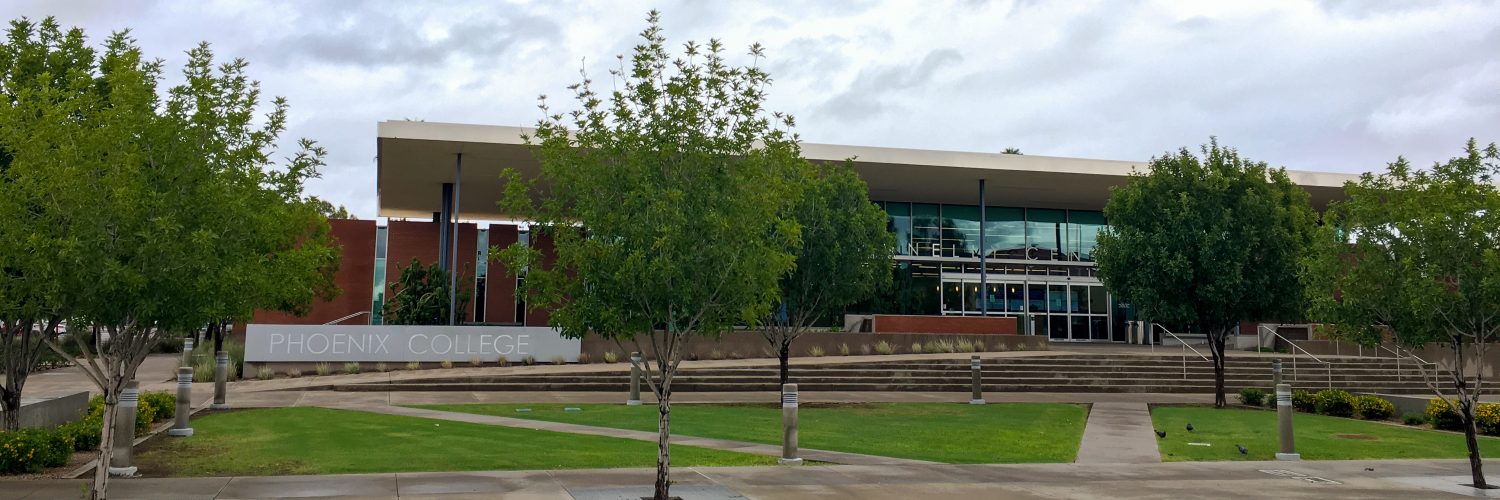The National Science Foundation (NSF) has granted Phoenix College nearly $1.5 million to support integrating research, mentoring and industry collaborations to improve STEM (science, technology, engineering and mathematics) recruitment and retention among minority students at the college. The grant comes as part of the first round of grants from the NSF’s Improving Undergraduate STEM Education: Hispanic-Serving Institutions program, also known as the HSI program.
“The National Science Foundation has a strong commitment to promoting the health, prosperity and welfare of the nation by broadening participation in science, technology, engineering and mathematics,” said Dr. Talitha Washington, co-lead program director of the NSF HSI program.
Phoenix College had to meet a rigorous set of merit requirements to be chosen for the competitive HSI grant.
“All proposals for HSI funding go through NSF’s gold-standard merit review process that identifies which projects to support,” Washington said. “That process considers both the technical aspects of a proposed project and its potential to contribute more broadly to advancing NSF’s mission.”
Phoenix College is part of the Maricopa County Community College District (MCCCD), one of the largest community college systems in the United States. Out of a total of 10 campuses, all of which are regionally-accredited, six are now designated as Hispanic-Serving Institutions (HSIs), and more will follow.
“What is really great about our colleges is that we serve a large percentage of Hispanic students, and many of them are first-generation college students,” said Robin Cotter, professor of biosciences at Phoenix College and one of the primary project team members who authored the NSF grant proposal.

Maricopa Community College faculty used their free time to form the grant proposal in the hope that they might introduce their students to more research opportunities that will better prepare them for the workforce, Cotter said.
“Many of us come from research backgrounds, and we know that helping our students make connections with industry and university partners is key to their success as they move along that pathway toward their career,” Cotter said. “So we decided to take our free time — we weren’t paid to do this — and we worked together to develop this application. It included faculty from biology, psychology, math, geology, physics; and we all worked together to develop this proposal that then competed at the national level.”
This is the first time this particular grant has been offered by the NSF to HSIs nationwide. Among the applicants were community colleges and universities, including Research I (R1) Universities — highly competitive research institutions. The grant will fund Course-Based Undergraduate Research Experiences (CUREs) for students at Phoenix College, and the program is expected to impact more than 3,000 community college students.
The MCCCD schools have teaching laboratories but no independent research labs, inadvertently withholding vital opportunities from students hoping to find careers in STEM fields. The CURE model inserts research directly into community college coursework.
“We decided that since we couldn’t give our students independent research opportunities, we were going to embed it into our curriculum,” Cotter said. “And nationwide, they’re telling us that embedding practical applications of knowledge is the best way to teach students and prepare them.”
Phoenix College is already partnering with local businesses and governments to create opportunities for students to build practical skills. At the request of industry leaders, the college is making workforce training a core part of its curriculum, putting students in touch with industry partners within the first two years of their academic careers.
“I’m really excited to say that we’re partnering with the City of Surprise and their water treatment plant,” Cotter said. “We’re going to identify ways that we can look for micro-plastics and other pollutants in our water system, and then we’re going to have the students work on ways of removing them in order to improve water quality across the region.”
The United States Department of Agriculture (USDA) is another partner. Students who work with the USDA will look at the impact of environmental factors, including pesticides, on the survival of crop pollinators such as honeybees.
“The honeybee population is important to the agricultural community here in Arizona and nationwide,” Cotter said. “So we’re going to be working with the USDA, based out of Tucson, and the students will be studying what actually impacts honeybee health and how this can be resolved so that we can maintain these pollinators that are necessary for our agricultural community.”
One of the NSF’s goals is to gain a better understanding of how to enhance undergraduate STEM education at HSIs, Washington said.
“The HSI program seeks to increase the number of STEM undergraduate students, who ultimately will become STEM professionals,” Washington said. “It seeks to increase retention and graduation rates for STEM students at HSIs and to increase the number of STEM educators and students at HSIs that have little or no prior NSF funding.”
Phoenix College received the NSF grant as the result of faculty-driven collaboration between all 10 MCCCD campuses, Cotter said.
“We recognize the need to train our students for the workforce, and that it’s really built on community partnerships, and we encourage anybody who wants to be involved to reach out to us,” Cotter said.
















Add comment